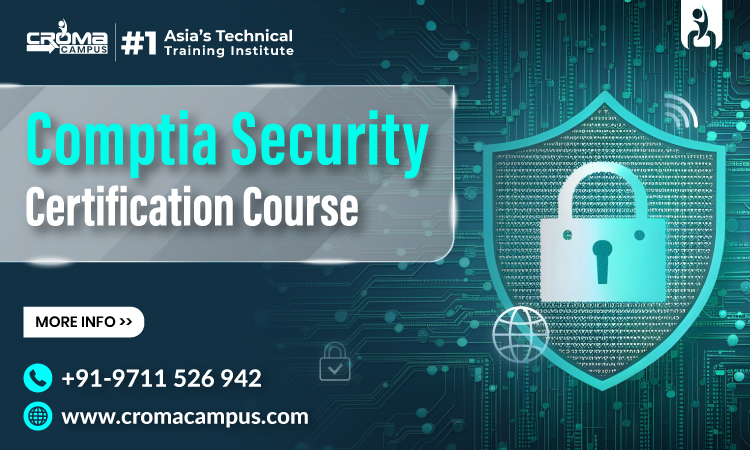In today’s digital age, cybersecurity is more critical than ever. Every day, we hear stories of data breaches and cyber-attacks affecting businesses and individuals alike. Certification in CompTIA Security+ not only validates your expertise in cybersecurity but also opens doors to exciting career opportunities in the ever-growing field of IT security.
In this article, we’ll break down what CompTIA Security+ is, why it’s important, and how you can start your journey with a CompTIA Security Plus course. Let’s dive in!
Understanding CompTIA Security+
CompTIA Security+ is a certification course that equips you with the knowledge and skills needed to secure computer systems and networks. Think of it as learning the secrets to keeping digital information safe from cyber threats like hackers, viruses, and malware.
Career Options
- Cybersecurity Analyst: Worked as a cybersecurity analyst, monitoring, detecting, and responding to security incidents. Analyse security logs, investigate threats, and implement security measures to protect organizations from cyber threats.
- Security Consultant: Provide consulting services to clients on security best practices, risk assessments, and security architecture design. Help organizations develop and implement effective security strategies to mitigate risks and achieve compliance.
- Security Engineer: Design, implement, and maintain security solutions such as firewalls, intrusion detection systems, and encryption technologies. Develop security policies, procedures, and standards to ensure the confidentiality, integrity, and availability of information assets.
- Security Administrator: Manage security infrastructure and systems, including access controls, user authentication, and security configurations. Monitor security alerts, perform security audits, and enforce compliance with security policies and regulations.
- Penetration Tester: Conduct penetration testing and vulnerability assessments to identify security weaknesses in systems, networks, and applications. Provide recommendations for remediation and assist in improving overall security posture.
What You Need To Learn To Become A Master?
- Master Security Fundamentals: Ensure a strong understanding of security principles, concepts, and technologies covered in the CompTIA Security Plus course. Review topics such as network security, cryptography, identity management, and risk management.
- Hands-on Experience: Gain practical experience by working on security projects, participating in cybersecurity challenges, and completing lab exercises. Highlight your experience with security tools and techniques during the interview.
- Stay Updated: Keep abreast of the latest cybersecurity threats, trends, and best practices. Familiarize yourself with industry-standard security frameworks and regulations such as NIST, ISO 27001, and GDPR.
- Practice Scenario-based Questions: Practice answering scenario-based questions to demonstrate your problem-solving skills and ability to apply security concepts in real-world situations. Be prepared to discuss your approach to identifying and mitigating security risks.
- Communication Skills: Develop strong communication skills to effectively convey technical concepts, discuss your security experience, and collaborate with team members. Practice articulating your ideas clearly and concisely during the interview.
With a Comptia Certification A+ you can enter into the world full of opportunities with cyber security roles.
Conclusion
CompTIA Security+ may seem tough at first, but with the right course and a bit of dedication, you’ll be well on your way to becoming a cybersecurity expert. Remember, the key is to take it one step at a time, stay curious, and never stop learning. Happy cybersecuring!




